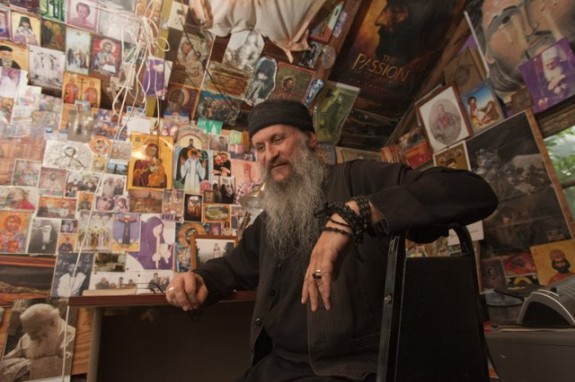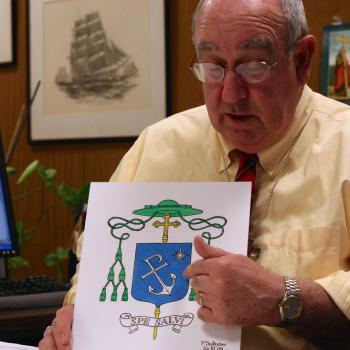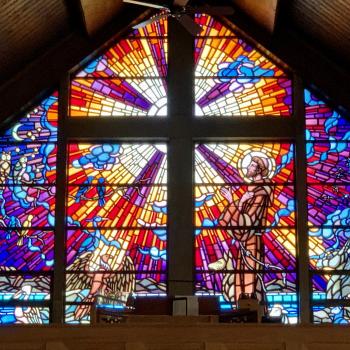And now for something completely different:
He’s been called Muslim, Jewish, a Zen master, even Osama bin Laden. Oftentimes people are just puzzled: What is that guy?
Michael Wilson, who has worked at Lawrence’s Liberty Hall for more than two decades, has a long beard that grays the further it grows away from his face and dusted dreadlocks left over from his days as a Rastafarian. Now he keeps the hair and beard to present himself in the image of Jesus Christ. He dons a black cassock and skull cap, an outfit that signifies his ordination as a Serbian Orthodox deacon.
When he tells people this, they often ask him, why Orthodoxy? Wouldn’t it just be easier to go to the Lutheran church down the street?
“Christ calls people in different ways,” said the 55-year-old janitor. “Each one of us has his path. Your path is the only path to Christ.”
The leap from Rastafari to Christian Orthodoxy is not as far as one might think. Much of the Rastafarian community is itself deeply spiritual. Its figurehead, former Ethiopian emperor Haile Selassie, is believed by followers to be a descendent of King Solomon. Even when he was known as “Ras Mike,” Wilson espoused a message of love, of oneness, of God.
“There are only two things that Mike dropped: the herb and the beliefs about his majesty (Selassie). Everything else is the same Mike,” said Lynne Anderson, a Kansas City, Mo., holistic practitioner who has known Wilson for nearly three decades. “If he came and told me he was leaving his spiritual journey, that would be the only thing that would surprise me.”
Wilson has a tendency to dive deep into whatever he’s passionate about. He went all the way as a Rastafarian as well, attending Rasta-revival festivals, hosting a reggae radio show in Kansas City and traveling to Jamaica on several occasions.
He actually met the man who brought him into the Serbian Orthodox faith, the Rev. David Altschul, at a reggae festival in Kansas City, Mo., more than 10 years ago.
“There were many similarities between Rasta tradition and Orthodox tradition,” said Altschul, who is known to his followers as Father Paisus. “Respecting the Earth, treating each other with dignity and love, seeing all of us as in the world together, overcoming racial injustice, the idea of us being one humanity.”












